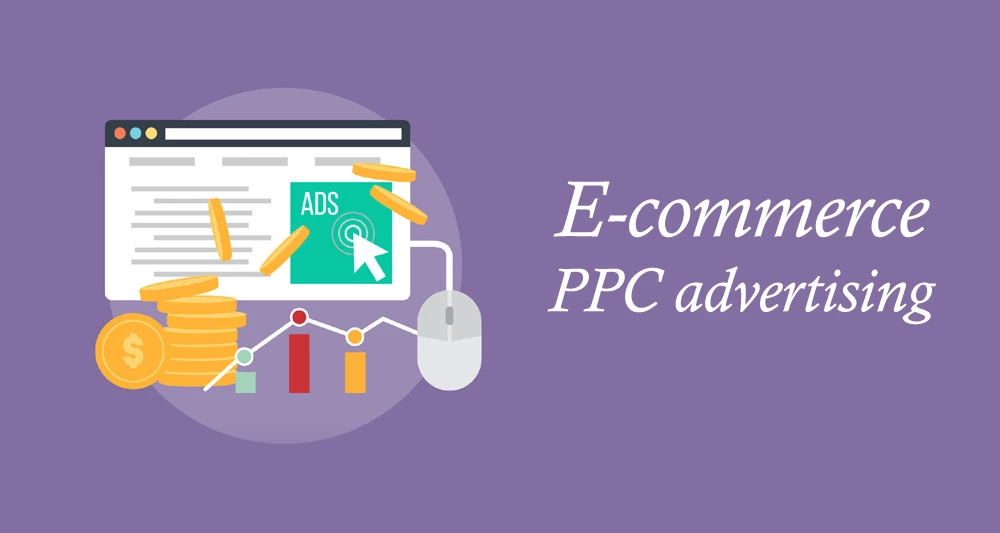Introduction
What is E-commerce PPC Advertising
E-commerce PPC advertising is a form of online advertising where businesses pay for their ads to appear on search engines and other websites. With PPC advertising, businesses only pay when a user clicks on their ad, making it a cost-effective way to drive traffic to their website and increase sales.
For e-commerce businesses, PPC advertising is particularly effective because it allows them to target users who are actively searching for products or services related to their business. This means that businesses can reach potential customers at the exact moment they’re looking to make a purchase.
There are several types of e-commerce PPC advertising available, including search ads, display ads, shopping ads, and social media ads. Each type of ad has its own unique benefits and strategies, and businesses can choose which type(s) of ads to use based on their goals and target audience.
Importance of E-commerce PPC Advertising for Business
Here’s an explanation of the importance of E-commerce PPC advertising for businesses:
Increased visibility
PPC advertising allows businesses to increase their visibility online, by placing ads in front of users who are actively searching for products or services related to their business. This can lead to more traffic to the business’s website, which can ultimately result in more sales.
Cost-effective
With PPC advertising, businesses only pay when a user clicks on their ad, making it a cost-effective way to drive traffic to their website. This can be especially beneficial for small businesses with limited advertising budgets.
Targeted advertising
E-commerce PPC advertising allows businesses to target specific audiences based on demographics, interests, and search behavior. This means that businesses can reach potential customers who are more likely to be interested in their products or services, resulting in higher conversion rates.
Measurable results
PPC advertising provides businesses with measurable results, including click-through rates, conversion rates, and return on investment (ROI). This allows businesses to track the success of their campaigns and make data-driven decisions about future advertising efforts.
Understanding E-commerce PPC Advertising
Definition of PPC advertising
PPC advertising, or pay-per-click advertising, is a form of online advertising where businesses place ads on search engines, social media platforms, and other websites, and pay each time a user clicks on their ad. PPC advertising is a cost-effective way for businesses to drive traffic to their website and increase sales, as they only pay when a user takes a specific action (in this case, clicking on their ad).
PPC advertising typically involves bidding on specific keywords or phrases that are relevant to the business’s products or services. When a user searches for these keywords, the business’s ad may appear at the top of the search results, increasing the likelihood that the user will click on the ad and visit the business’s website.
The difference between traditional advertising and PPC advertising
Here’s a comparison of traditional advertising and PPC advertising:
Traditional advertising refers to traditional forms of advertising such as TV commercials, print ads, billboards, and radio ads. These ads are typically broadcast to a wide audience and are not targeted to specific individuals. Traditional advertising can be expensive and may not provide businesses with measurable results.
PPC advertising, on the other hand, is a form of online advertising where businesses place targeted ads on search engines and other websites, and pay each time a user clicks on their ad. PPC advertising is typically more cost-effective than traditional advertising, as businesses only pay when a user takes a specific action (clicking on their ad).
PPC advertising also provides businesses with measurable results, including click-through rates, conversion rates, and return on investment (ROI). This allows businesses to track the success of their campaigns and make data-driven decisions about future advertising efforts.
Traditional advertising can be effective in reaching a wide audience, it may not provide businesses with measurable results or targeted advertising options. PPC advertising, on the other hand, offers businesses a cost-effective and measurable way to reach specific audiences and drive traffic to their website.
Benefits of E-commerce PPC advertising
Here are some benefits of e-commerce PPC advertising:
- Increased traffic: E-commerce PPC advertising can help businesses drive more traffic to their website by placing targeted ads in front of users who are actively searching for products or services related to their business.
- Improved conversion rates: By targeting specific audiences based on demographics, interests, and search behavior, e-commerce PPC advertising can help businesses improve their conversion rates and increase sales.
- Cost-effective: E-commerce PPC advertising is a cost-effective way for businesses to advertise online, as they only pay when a user clicks on their ad. This means that businesses can control their advertising spend and ensure that they are getting the most out of their budget.
- Measurable results: E-commerce PPC advertising provides businesses with measurable results, including click-through rates, conversion rates, and return on investment (ROI). This allows businesses to track the success of their campaigns and make data-driven decisions about future advertising efforts.
- Targeted advertising: E-commerce PPC advertising allows businesses to target specific audiences based on demographics, interests, and search behavior. This means that businesses can reach potential customers who are more likely to be interested in their products or services, resulting in higher conversion rates.
Different types of E-commerce PPC advertising
Here are some different types of e-commerce PPC advertising:
1. Search ads
Search ads are text-based ads that appear at the top of search engine results pages (SERPs) when a user searches for a specific keyword or phrase. Search ads are highly targeted and allow businesses to reach users who are actively searching for products or services related to their business.
2. Display ads
Display ads are visual ads that appear on websites and social media platforms. These ads can be targeted to specific audiences based on demographics, interests, and search behavior, and can be used to increase brand awareness and drive traffic to a website.
3. Shopping ads
Shopping ads are product-based ads that appear at the top of search engine results pages (SERPs) and include a product image, price, and other details. Shopping ads are highly effective for e-commerce businesses, as they allow users to see products and prices directly in the search results.
4. Remarketing ads
Remarketing ads are ads that are targeted to users who have previously visited a website or engaged with a business. These ads can be used to remind users of products or services they have previously viewed and encourage them to complete a purchase.
5. Video ads
Video ads are ads that appear before, during, or after online videos. Video ads can be highly engaging and can be used to increase brand awareness and drive traffic to a website.
Keyword Research and Targeting
Importance of keyword research
Here’s why keyword research is important for e-commerce PPC advertising:
Keyword research is the process of identifying and analyzing the keywords and phrases that potential customers use when searching for products or services related to a business. This research is essential for e-commerce PPC advertising, as it allows businesses to identify the keywords that are most relevant to their products or services and target them in their advertising campaigns.
By conducting thorough keyword research, businesses can ensure that their PPC ads are shown to users who are actively searching for products or services related to their business. This can help businesses drive more targeted traffic to their website and increase their conversion rates.
Keyword research also allows businesses to identify high-performing keywords that they can use to optimize their website and improve their organic search rankings. This can help businesses drive more traffic to their website without having to rely solely on paid advertising.
Keyword research is an important part of E-commerce PPC advertising as it helps businesses identify the most relevant keywords to target in their advertising campaigns, increase their conversion rates, and improve their organic search rankings. By investing time and resources into keyword research, businesses can create more effective PPC campaigns and achieve their advertising goals more efficiently.
How to conduct keyword research for e-commerce PPC advertising
Here are the steps to conduct keyword research for E-commerce PPC advertising:
- Start with a brainstorming session: Begin by brainstorming a list of relevant keywords and phrases that potential customers might use to search for products or services related to your business. Use a mix of broad and specific terms, and include product names, brand names, and descriptors.
- Use keyword research tools: There are several keyword research tools available that can help you identify additional keywords and analyze their search volume and competition. Some popular tools include Google Keyword Planner, SEMrush, and Ahrefs.
- Analyze competitor keywords: Look at the keywords that your competitors are using in their PPC campaigns and identify any opportunities to target similar keywords or differentiate your advertising strategy.
- Consider long-tail keywords: Long-tail keywords are longer, more specific phrases that can be highly targeted and less competitive than broader keywords. Consider incorporating long-tail keywords into your advertising strategy to reach more targeted audiences.
- Refine your keyword list: After conducting your research, refine your list of keywords and prioritize the most relevant and high-performing keywords for your advertising campaigns.
- Test and optimize your campaigns: Once you have identified your target keywords, use them in your PPC campaigns and monitor their performance. Continuously optimize your campaigns by adjusting your bids, ad copy, and landing pages based on the performance of your keywords.
Targeting your ads to the right audience
Targeting your ads to the right audience is crucial for e-commerce PPC advertising as it helps ensure that your ads are seen by users who are most likely to be interested in your products or services. By targeting the right audience, you can increase the relevance of your ads, improve your click-through rates, and ultimately drive more conversions and sales.
Demographic targeting
Consider targeting your ads based on demographics such as age, gender, location, and income level. This can help you reach users who are most likely to be interested in your products or services based on their characteristics.
Behavioral targeting
Behavioral targeting involves targeting your ads based on user behavior, such as past purchases or browsing history. This can help you reach users who have shown an interest in products or services similar to yours.
Interest targeting
Interest targeting involves targeting your ads based on users’ interests and preferences. This can help you reach users who have shown an interest in topics related to your products or services, even if they haven’t specifically searched for them.
Remarketing
Remarketing involves targeting users who have previously interacted with your website or ads. This can be an effective way to reach users who have shown a previous interest in your products or services.
Common E-commerce PPC Advertising Mistakes
Overbidding on keywords
Overbidding on keywords, businesses should focus on optimizing their advertising campaigns by using a combination of relevant keywords, compelling ad copy, and effective landing pages. By continuously monitoring and adjusting their bids based on performance data, businesses can improve their ad positioning and achieve their advertising goals more efficiently.
Here are some reasons why overbidding on keywords is not a recommended strategy for e-commerce PPC advertising:
- It can increase costs: Overbidding on keywords can quickly drive up the cost of your advertising campaign, resulting in a lower return on investment (ROI) for your business.
- It can reduce profitability: Overbidding can lead to lower profit margins, as businesses are spending more on advertising than they are generating in sales.
- It can reduce ad visibility: Overbidding can also result in lower ad visibility, as search engines may view your ads as irrelevant or spammy if they are not generating enough clicks or conversions.
Targeting the wrong audience
To avoid targeting the wrong audience, businesses should conduct thorough research and analysis to identify their ideal customer demographics, interests, and behaviors. By using tools such as Google Analytics and Facebook Audience Insights, businesses can gain valuable insights into their target audience and use this information to create more effective advertising campaigns.
Here are some reasons why targeting the wrong audience can be detrimental to e-commerce PPC advertising campaigns:
- Low click-through rates: When ads are targeted to the wrong audience, they are less likely to generate clicks, resulting in low click-through rates (CTR) and lower ad relevance scores.
- Wasted advertising spend: Targeting the wrong audience can result in wasted advertising spend, as businesses are paying to display ads to users who are not interested in their products or services.
- Low conversion rates: Even if ads do generate clicks, if they are not targeted to the right audience, they are less likely to result in conversions, reducing the ROI of the advertising campaign.
Not using negative keywords
Not using negative keywords is another common mistake that businesses make in e-commerce PPC advertising. Negative keywords are terms or phrases that businesses do not want their ads to appear for, and can be used to help refine ad targeting and increase relevancy.
Here are some reasons why not using negative keywords can be detrimental to e-commerce PPC advertising campaigns:
- Irrelevant clicks: Without negative keywords, businesses may receive clicks from users who are not interested in their products or services, resulting in wasted advertising spend and lower ad relevance scores.
- Lower conversion rates: Irrelevant clicks can also result in lower conversion rates, as users who are not interested in a business’s products or services are less likely to convert.
- Increased costs: Not using negative keywords can result in increased costs, as businesses may end up paying for clicks from users who are not interested in their products or services.
To avoid these issues, businesses should conduct thorough keyword research and analysis to identify negative keywords that are relevant to their products or services. Negative keywords can include terms such as “free,” “cheap,” or “review,” which may attract users who are not interested in making a purchase.






















+ There are no comments
Add yours